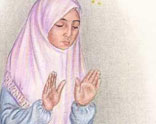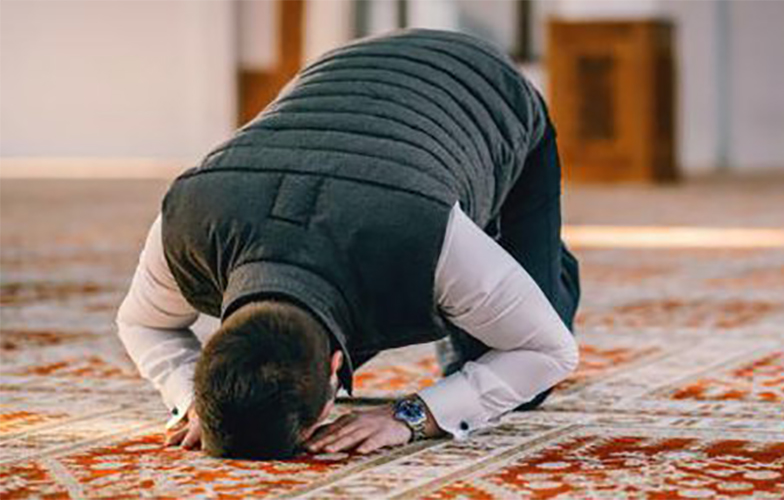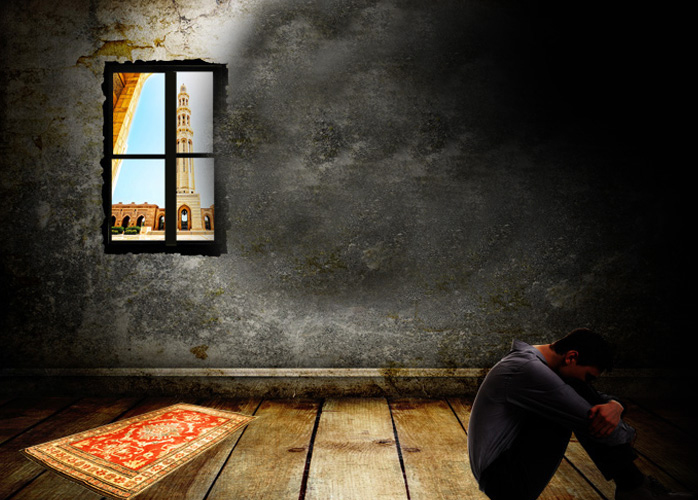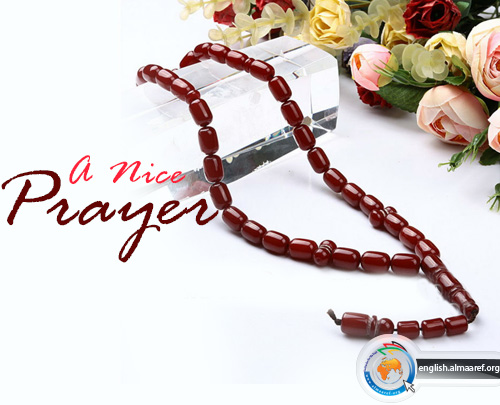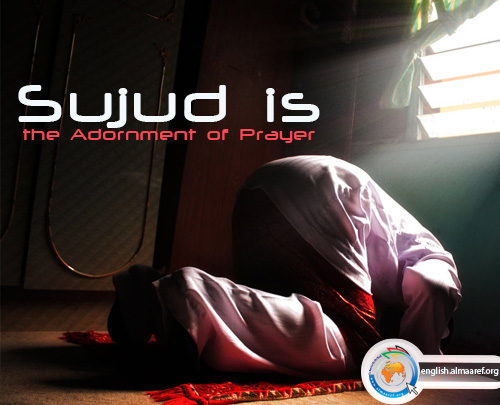Judgments of Impurities
- In case one meets with impurity, he does not become impure unless there is a
transmitting wetness.1
- The standard as regards the transmitting wetness is the transformation of the
wetness from the wet body to the other body upon touching.2
- It is conditional in the correctness of the prayer, whether dutiful or
desirable, that the body be impure even the hair and the nails and the clothes,
even if the impurity is equal to the tip of the needle except for what is
mentioned as regards the issues excused in the prayer.3
- It is forbidden to impurify the mosque, and one, even if he is not the one who
impurified it, must initiate to remove the impurity and purify it. In addition,
it is forbidden to impurify the sacred places, The Noble Qur’an, the Housseinyan
soil, and the books of the discourses related in ascription to the Impeccable
Imams (God’s prayers and peace bestowed upon them).4
- In case one intentionally performs the prayer with the impurity, his prayer is
abolished. Likewise is the case of the person who forgets about the impurity and
thus performs the prayer with it.5
- In case one doubts the presence of the transmitting wetness, he has to judge
with purity.6
- The thing which meets the impurity with the presence of transmitting wetness
becomes impure itself. And this thing which has become impure, in case it meets
a pure thing with the presence of a transmitting wetness, impurifies it as well.
However, in the case of the third impure thing i.e. in the case of the variety
of the intermediates, then it no more impurifies any other thing.7
The Impurities Excused in the Prayer
1- The blood of the wounds and the ulcers on the body or the cloth until they
heel in case they can not be removed, purified, or exchanged8
2- The blood on the body or the cloth in case its quantity is less than the knot
of the forefinger even if it is from the land dog and pig and even if it is not
from the three bloods9
3- Everything with which alone the prayer can not be performed, such as: the
sockets, the gloves, the belt, etc10
4- What turns to be from the parts or the associates, such as: the thread with
which the wound is stitched, and the blood which is donated and thus turns to be
from the inner parts11
The Judgments of Toileting
By toileting, it is meant to enter into the toilet in order to relieve one’s
nature.
In toileting, the following conditions must be taken into consideration:
1- Covering the private parts
2- Not having one’s face or back to the Kaaba12
3- Cleaning the exits of urine and feces
4- Making sure no urine or feces is still remaining
The Judgments of Covering the Private Parts
The private parts must be covered from the respectful looker i.e. the human
being whether he is an insane person or a distinguishing boy.
The Judgments of the Qibla [Kaaba] While Toileting
While toileting, it is forbidden to have the qibla in front of the person or
behind him. The standard in this is to have the qibla in front or back of him
with the breast and the belly or with the private parts only.
The Judgments of Cleaning the Exists of Urine and Feces
- The exit of urine can be purified by nothing save water. However, in case
one is unable to purify it with water, then the prayer is considered to be
correct.13
- As regards the purification of the exit of the urine, it is enough to wash it
once with the plenty water and twice with the little water after the removal of
the impurity itself. As regards the exit of the feces, one must wash it till the
impurity itself along with its traces is removed. 14
The purification of the exit of the feces can be achieved with something rather
than water under the following conditions:
1- that the feces does not exceed the normal exist; otherwise, it is obligatory
to purify it with water
2- that the feces is not accompanied by another impurity like the blood;
otherwise, it is indispensable to purify it with water
The remover of the impurity, like the stone or anything else, must meet the
following conditions:
1- It must be pure.
2- It must be dry.
3- It must not be from the bones or the manure i.e. animal droppings.15
4- It must not be from the holy things, such as: bread, precious stones, and the
paper on which the Names of God and the Qur’anian verses are written.
It is conditional to wipe the exit of the feces with three pieces. In case they
are not enough, more pieces may be used until purity is achieved through the
removal of the impurity itself along with its traces. One may wipe the impure
spot with the three sides of the one piece instead of using three pieces.16
1- Tahreer Al-Waseela
[Editing the Means]/ Part One/ Page 121/ Question 1
2- Ajweebat Al-Istifta’at [The Answers to the Consultations]/ Part One/ Page 81/
Question 289
3- Tahreer Al-Waseela/ Part One/ Page 119/ Question1
4- Tahreer Al-Waseela/ Part One/ Page 119/ Question 1
5- Tahreer Al-Waseela/ Part One/ Page 120/ Question 6
6- Tahreer Al-Waseela [Editing the Means]/ Part One/ Page 122/ Question 2
7- Ajweebat Al-Istifta’at [The Answers to the Consultations]/ Part One/ Page 79/
Question 282
8- Tahreer Al-Waseela/ Part One/ Page 124/ Question 1
9- Tahreer Al-Waseela/ Part One/ Page 124/ Question 1
10- Tahreer Al-Waseela/ Part One/ Page 125
11- Tahreer Al-Waseela/ Part One/ Page 125
12- Tahreer Al-Waseela [Editing the Means]/ Part One/ Page 171/ Question 1
13- Tahreer Al-Waseela/ Page 18/ Question 15
14- Ajweebat Al-Istifta’at [The Answers to the Consultations]/ Part One/ Page 89
15- Tahreer Al-Waseela [Editing the Means]/ Part One/ Page 19/ Question 4
16- Ajweebat Al-Istifta’at [The Answers to the Consultations]/ Part One/ Page 99


